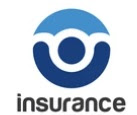Insurance fraud refers to any deceptive or illegal activity committed with the intention of obtaining financial benefits from an insurance company. It can take various forms and occurs across different types of insurance policies. Here's an overview of insurance fraud, including its types, prevention measures, and reporting procedures:
Types of Insurance Fraud:
False Claims: Individuals or businesses submit fraudulent claims for losses or damages that did not occur or were intentionally caused.
Staged Accidents: Fraudsters intentionally cause or stage accidents to file fraudulent claims for vehicle damage, bodily injuries, or both.
Exaggerated Claims: Legitimate claims are exaggerated or inflated to receive higher compensation from the insurance company.
Insurance Application Fraud: False information is provided on insurance applications to obtain coverage or lower premiums.
Premium Fraud: Policyholders misrepresent information, such as their address or occupation, to obtain lower premiums.
Provider Fraud: Healthcare providers, such as doctors or clinics, bill for services not rendered or overcharge for services provided.
Prevention Measures:
Educate Policyholders: Insurance companies can educate their policyholders about insurance fraud, its consequences, and how to recognize and report fraudulent activities.
Underwriting and Claims Investigations: Implement robust underwriting and claims investigation processes to identify red flags and inconsistencies in claims.
Technology and Data Analysis: Leverage technology and data analysis tools to detect patterns of fraudulent behavior and identify suspicious claims.
Training and Awareness: Train employees to identify red flags, detect fraudulent activities, and follow proper reporting procedures.
Collaboration and Information Sharing: Insurance companies can collaborate with law enforcement agencies, industry organizations, and fraud detection systems to share information and detect fraudulent activities.
Reporting Insurance Fraud:
Contact Your Insurance Company: If you suspect insurance fraud, report it to your insurance company. They will have a dedicated department or hotline to handle fraud-related matters.
State Insurance Department: Report the fraud to your state's insurance department. They can provide guidance and investigate the fraudulent activity.
National Insurance Crime Bureau (NICB): For auto insurance fraud, report the incident to the NICB, which is a not-for-profit organization focused on combating insurance fraud.
Law Enforcement: If you believe insurance fraud is taking place, you can report it to your local law enforcement agency. Provide all relevant information and evidence you have.
Anonymous Tip Lines: Some insurance companies, law enforcement agencies, or state insurance departments have anonymous tip lines or online reporting systems specifically for reporting insurance fraud.
It's important to note that you should not confront or accuse anyone suspected of insurance fraud yourself. Leave the investigation and handling of the matter to the appropriate authorities and professionals.
Insurance fraud is a serious offense that affects honest policyholders and contributes to increased premiums for everyone. By reporting suspected fraud and implementing preventive measures, insurance companies and policyholders can work together to combat insurance fraud and maintain the integrity of the insurance industry.



0 Comments